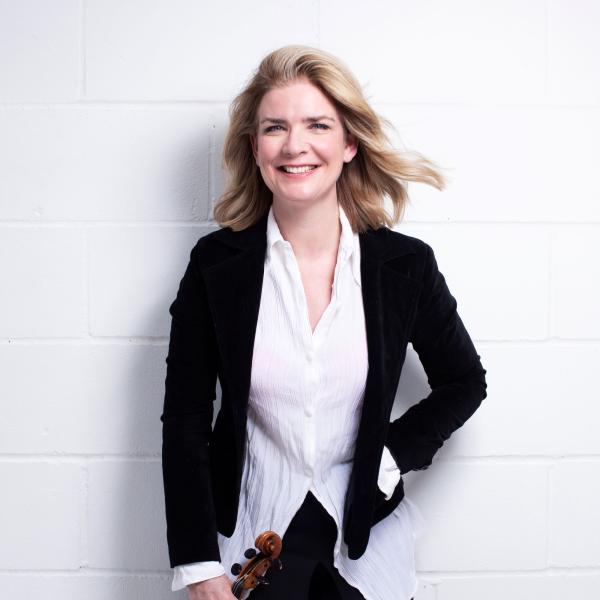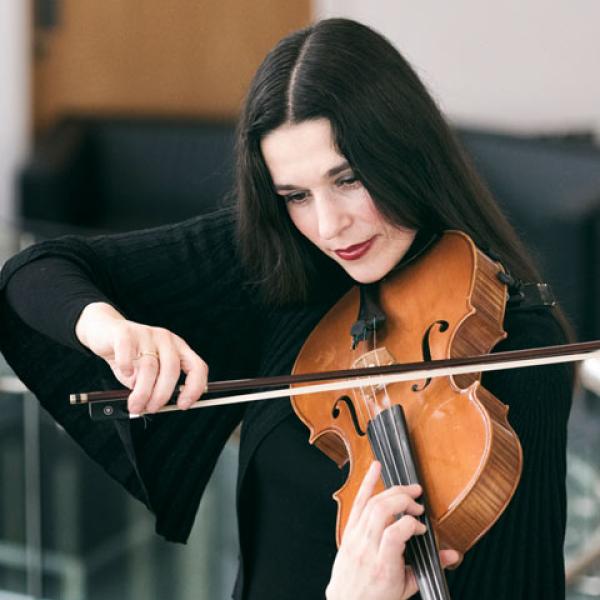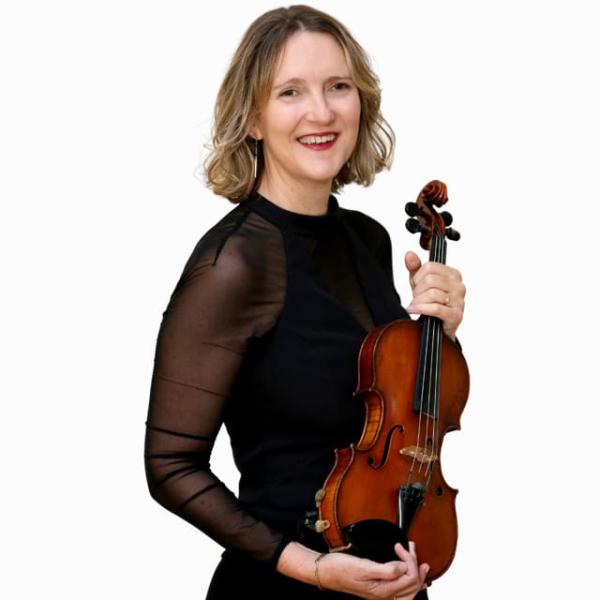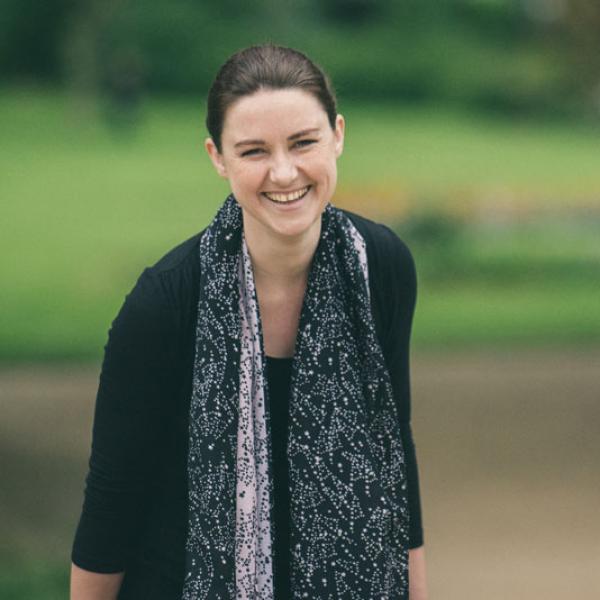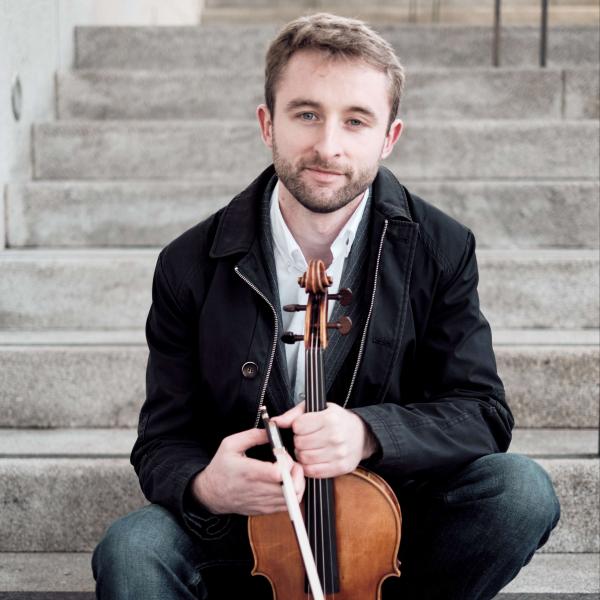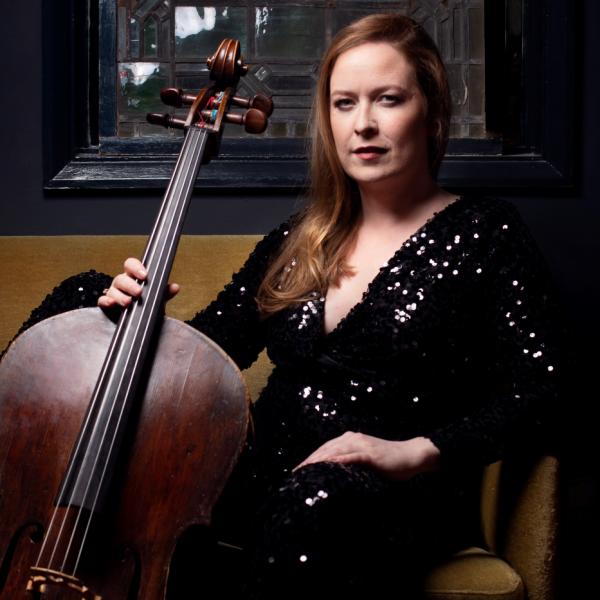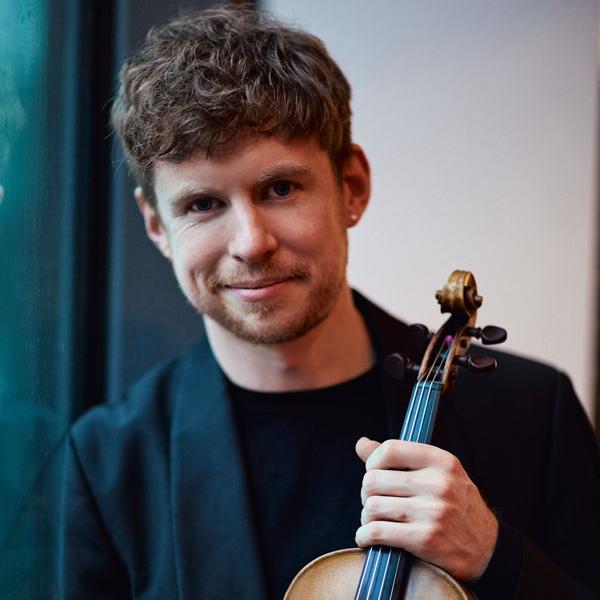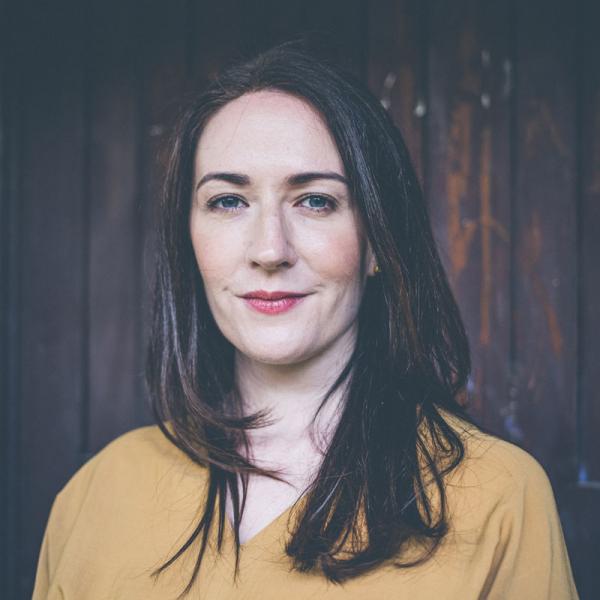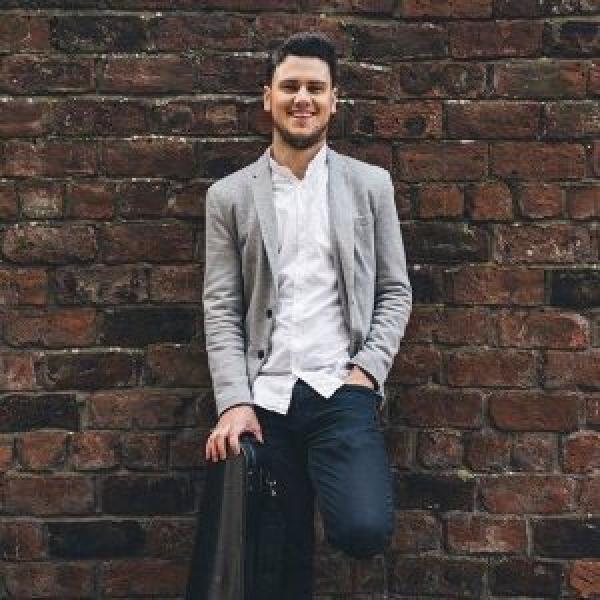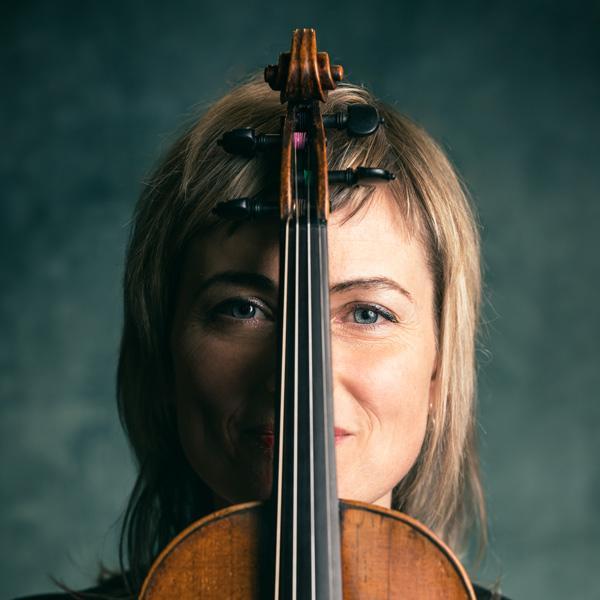The MMus is a two-year postgraduate programme. Each study year has 30 weeks in total from September to June: 24 academic teaching weeks and 6 performance spotlight weeks. There are no academic classes during performance spotlight weeks, but practical lessons continue across all weeks.
The Strings Faculty focuses on the three main areas of performance: solo, orchestral and chamber music. This is combined with supporting academic studies and optional RIAM Holistic modules to allow students to develop into a complete musician.
Solo Performance
The MMus builds on the foundations of an undergraduate degree to focus on performance. The course is designed to allow flexibility in recital programming, encouraging students to develop their own creative interests and individual musical personalities.
With 2 hours of one-to-one lessons per week, students have the space to work in depth with their principal study teacher, creatively programming and preparing a mid-year recital, concerto performance and full-length end-of-year recital.
Competitions, such as the Maura Dowdall Award, promote not only experience in competitive solo performance, but also offer the winner the exceptional opportunity of a solo engagement with the RTÉ National Symphony Orchestra.
In our wide range of string performance classes, students develop stage presence and build up their mental performance strength. Additional classes include historical performance, audition training and contemporary techniques. In performance class, students develop critical listening skills, learning to give constructive feedback based on their ever-growing breadth of knowledge. Students build their own musical personalities, form individual tastes and opinions whilst maintaining an openness to the many different interpretations that can be effective.
Following on from the introductory historical performance classes, students have the option to take second study baroque violin or cello. These students have additional one-to-one lessons with a baroque specialist and also have priority to perform in RIAM Early Music Ensemble.
The RIAM Strings Faculty has two International Visiting Artists, Daniel Rowland (violin) and Xuefei Yang (guitar) and these artists along with other high profile artists give regular masterclasses. Recent artist visits include Natalie Clein (cello); Gareth Knox (viola); Mauricio Fuks (violin); Hannah Roberts (cello); David Daly (bass) and Alban Gerhart (cello).
Orchestral Performance
Throughout the two years of the MMus, students take part in RIAM Podium, the Centre for Performing Ensembles. String students perform in the following ensembles:
- RIAM Philharmonia, a sinfonietta orchestra performing with world-renowned guest conductors
- RIAM Chamber Orchestra, an un-conducted string group
- RIAM Early Music Ensemble, exploring historically informed techniques and period performance through the use of Baroque instruments and bows
- RIAM Opera Orchestra, performing in fully-staged opera productions
- RIAM Contemporary Music Ensemble, tackling modern and newly written works
Orchestral training is project-based, emulating the professional music world. RIAM Philharmonia projects begin with intensive sectionals, build up to tutti rehearsals and culminate in a high profile concert with a world-renowned conductor. Sectional tutors include principal players from the RTÉ National Symphony Orchestra, RTÉ Concert Orchestra, Irish Chamber Orchestra and Ulster Orchestra. Recent guest conductors include Gerhard Markson, Jonas Alber, Kenneth Montgomery and Atso Almila.
Specialised orchestral excerpts classes and audition-training workshops allow students to develop the skills necessary to gain professional orchestral work. RIAM has mentoring agreements with the RTÉ National Symphony Orchestra, RTÉ Concert Orchestra and Irish Chamber Orchestra and students are selected from internal and external auditions for these opportunities. Selected students experience a real life professional setting, sitting in with these orchestras and playing alongside professional orchestral players.
Chamber Music
Chamber music is central to developing both listening and communication skills. All string players are placed in a string quartet or piano trio. Groups rehearse both independently and also with a designated chamber music coach. Many students are also placed in duo sonata partnerships with pianists. Students are actively encouraged to also form their own chamber groups, with additional coaching on offer to self-formed groups.
We aim for chamber groups to work together over a long-term period, to develop lasting musical partnerships that can continue into the profession. Regular visits from a variety of internationally renowned chamber musicians allow RIAM chamber groups to receive both additional private coaching and chamber music masterclasses. Recent visitors include the Navarra Quartet (UK/Netherlands) and members of both Trio Gaspard (Germany) and the Van Baerle Trio (Netherlands).
There are multiple concert opportunities for chamber music groups in the well-attended 11.11 Coffee Morning Concert Series. We partner with organisations throughout the island of Ireland to offer performance opportunities to our outstanding chamber groups. In 2018/19, RIAM string quartets and piano trios were selected to participate in masterclasses at the National Concert Hall (Emerson Quartet), Belfast International Festival of Chamber Music and West Cork Chamber Music Festival. In addition, large-scale chamber music such as string sextets and octets are also programmed in special side-by-side projects, where advanced students play alongside professionals in venues such as the National Gallery of Ireland.
Supporting Academic Studies
The academic component of the degree adds an intellectual foundation to practical instrumental studies, increasing each student’s depth and breadth of knowledge. Students explore a specialist own choice elective: Dissertation, Composition, Music Technology, Analysis or Conducting.
RIAM Holistic – the working musician
RIAM Holistic modules are designed to develop students into flexible and adaptable artists, ready in mind and body for the demands of a career in music. MMus students have the option to study:
- Career Strategy
- Entrepreneurship
- The Principles of Pedagogy
- Music in the Community
- Contemporary Music Collaborations
- Yoga and Feldenkrais
- Performance Psychology
For a more detailed description of the course requirements, please refer to our course handbook.
